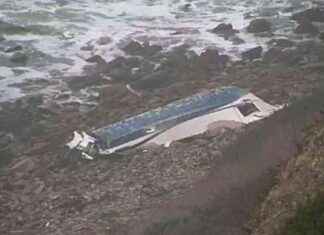The maneuver by Pedro Sánchez’s government to have the European Union (EU) withdraw the sanctions imposed against the Bolivarian revolution has provoked the response of María Corina Machado, the new opposition leader after sweeping the primary elections last Sunday. “It is very difficult for them to get out of clean and free elections, in which their own allies, called Lula (da Silva, president of Brazil), (Gustavo) Petro (president of Colombia), AMLO (Andrés Manuel López Obrador, president of Mexico), Alberto Fernández (president of Argentina) or the Spanish government itself are encouraging them to comply. The conclusion of the Bogotá Conference of the 20 countries present, including the allies of the regime, is that we must go to elections,” Machado said during an interview with CNN.
The initiative of José Manuel Albares, Minister of Foreign Affairs, contemplates that Brussels does not extend for another year the sanctions that prevent 55 members of the revolutionary elite from traveling to the EU, including Vice President Delcy Rodríguez, generals, judges and several of the best-known torturers of the Chavista repressive system. The sanctions also include an arms embargo, with the aim of stopping internal repression.
The excuse used by Albares to take this step, which has fallen like a bomb among the opposition and civil society, is based on “the recent decisions of the United States and given the positive evolution of the dialogue between Venezuelans.”
“The classification of the Spanish government as an ally of Maduro is striking because it was one of the 12 countries that sent a diplomatic representative to a meeting with Machado in his campaign command on October 24,” stressed Mariano de Alba, senior advisor of the CrisisGroup. In fact, the Spanish diplomat was the only one of those mentioned who attended that meeting, in which only Panama, Peru and the Dominican Republic took part in Latin America.
“Although reports have emerged of alleged opposition from Germany and the Netherlands to a Spanish plan to lift sanctions on Venezuela, there is agreement in Europe that given the US response and if the implementation of the Barbados Agreement advances, the EU will also act,” De Alba reveals.
A dialogue that only nine days after the signing of Barbados is once again in crisis, after the furious attack of Chavismo against the National Primary Commission (CNP), responsible for the historic feat of the opposition’s self-managed elections, carried out against the wind. and tide and who garnered 2.5 million votes. The Attorney General’s Office of the Republic accuses the members of the CNP of usurpation of functions, identity theft, money laundering and criminal association. Maduro’s allies demand his immediate arrest.
Among the accused is in the front row the president of the CNP, Jesús María Casal, dean of the Law School of the Andrés Bello Catholic University who has become a popular hero today. Casal has conducted an almost impossible process, with the help of thousands of volunteers and witnesses and without the support of the National Electoral Council (CNE), which forced the use of all types of facilities to house the 5,000 electoral centers. Among them the homes of sympathizers in the most popular neighborhoods in the country, despite threats from the Chavismo communal councils.
“We are facing a violation of the Barbados Agreements,” Machado insisted yesterday during her proclamation as a unitary opposition candidate. Gerardo Blyde, head of the opposition negotiating delegation, has a very similar opinion, who has repeated that the judicialization of “an internal process protected by the agreement can imply a serious problem for its compliance, which is why we will complain to the verification and monitoring commission in a manner overwhelming”.
Chavismo ensures ad nauseam that Machado will not be a candidate for anything in the world; even Jorge Rodríguez, head of the Chavista negotiating commission, appeared on public television to ensure that there is no dialogue with “fascists.”
“Without having divinatory gifts, I believe that after a brief promise of opening, Venezuela is moving towards a model similar to the Nicaraguan one. The harshest ones will make it impossible for Machado to participate in elections. Its costs are very high,” predicted political scientist Ángel Álvarez.





